 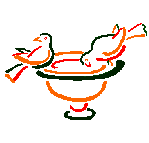 | ||
| January 7, 2001 | ||
 "JOHN MAIN'S SENSE OF
HOLINESS" "JOHN MAIN'S SENSE OF
HOLINESS" | ||
|
Notes from a Talk at the Monastery of Christ the King,
Cockfosters. Father John's varied life and personality was given a unity by his search for God. For him this search meant the soul's hunger for depth, meaning, freedom and love. For him, as for us all, the hunger for God that is written into our being is verified by how it gets stronger with time. The more we are fed the more we hunger. It is our vocation for holiness. John Main believed passionately in the universality of this vocation and found in meditation a way that people of all life-styles and temperaments could fulfill this most deeply human call. Any contemporary spirituality must recognize this and it is the work of teachers, saints, and sages to affirm it. The church is not less than a school of universal holiness. What Holiness is not To understand what holiness is we need to be able to say what it is not. Father John was very good at exposing false ideas about holiness. It is not - as religious people are always prone to believe - the same as conformity or uniformity. When defined by religious authorities or institutions holiness can be devalued into little less than social approval. This of course is a powerful force. We like to be liked and we greatly fear disapproval, rejection or excommunication. But Jesus emphatically drew the distinction between the approval that comes from human beings and the approval that comes from God (Mt 6:1-6). St Paul drew as sharp a line between the righteousness that comes from the law or faith. There is a tempting but dangerous attraction in us towards the satisfaction of 'doing it right' - filling in forms, obeying rules, fulfilling self-made goals. Holiness is not this kind of satisfaction. The great exemplars of holiness have always been individuals who have transcended their egotism in ways that are recognizably and prophetically unique. The call to holiness, as Father John remarked, is about becoming the person God calls us to be - not the one others might like or expect us to be. So if we accept and pursue our vocation to holiness we will confront solitude, not as isolation from others, but as the recognizing and embracing of our uniqueness. Holiness is the fruit of integration. As we become holier our outlook becomes less dualistic. The body and the world of matter find their proper place. The body in particular is seen as the finely tuned instrument on which the music of the spirit is played and communicated. As this music grows stronger in our life we also see that is not necessarily only in the religious sphere that holiness is manifested. The holy person is often an iconoclast - Jesus was called a blasphemer - for whom ' nothing is sacred' because everything is sacred. Holiness and Suffering Holiness confronts suffering. It provides the courage to run away from what can be avoided (as we should) but to stand and embrace what is inevitable. In so doing holiness uncovers the deepest truth of the human being as joy and peace. When everything else has been scraped away we find the pure spring of joy, what Fr John called the joy of being. This was evident in his own form of holiness even as he faced the physical sufferings of his last illness. The Holiness of Christ Jesus summons his disciples to abandon all their possessions. This must mean more than their bank accounts and Rolex watches because at the end of the day we always end up with something we can call our own even if it's just the shopping trolley we wheel round the streets. It means renouncing the ego's very tendency to possess, to let go that is of the naming of objects or thoughts as 'mine'. So, as Fr John taught in his theology of meditation, we let go even of 'my prayer' as we unite with the prayer of Jesus. Even Jesus did not claim an individual holiness: 'why do you call me holy', he asked, 'since only God is holy?' Christian meditation, in Fr John's words, means 'becoming fully awake in Christ'. This means realizing and recognizing the human consciousness of Jesus in us. It is seeing that we are in an indivisible relationship with him. What do we mean by his human consciousness? His personality is history - a necessary and inspiring history as far as we can recover it. But we can not be in relationshaip with a historical Jesus any more deeply than we can with any other historical figure. The Risen Jesus, however, is present to us and to all people of all times simultaneously. He is present to us as a 'life-giving spirit', as pure love. The whole of his humanity has been burned up in the divine experience - glorified, sanctified, transfigured by his sharing in the divine life. He has thus been transformed from being what he was, and what we still are, a separate individual limited by separateness and individuality. Having transcended these limitations by death and resurrection he has become the lens through which God sees us and we can see God. Christian holiness therefore defines itself and develops through the holiness of Jesus. Natural Holiness As Fr John taught it, holiness is the natural blossom of human growth. It is the innate beauty of the soul reaching its full fragrance by delighting in itself and delighting in others. Unlike other natural processes, however, our growth in holiness does not peak and then decline. As it enters the transcendence of the spiritual realm it sheds the cycle of death and rebirth and takes its place in the divine presence. It is from this realm that the holiness Fr John grew into continues to enrich and guide us who are touched by his teaching and wisdom. 'It is a good and holy thing to pray for the dead.' In fact we pray with them in the communion of saints. On this day of remembering Fr John with gratitude and zeal for his vision, let us pray we can continue to become the Community of Love to which he committed his life. Laurence Freeman
Each year, on December 30, our Community commemorates the life and death of Father John with a special day of silence and prayer. Visit our online commemorative page. | ||
|
| ||
|
These tapes are not yet available on our Medio
Media Web site, but can be purchased by calling 1-800-324-8305. "Being Present" will also be available early next year in CD format. The tracks on the CD have been arranged so that the talks and meditation period can be introduced and followed by music. To take full advantage of this feature, it is necessary to have a CD player with a 'pause'(II). You would start the CD the track before the talk you wish to play, and 'pause' the player after the music that follows the talk. Resume play after meditation. The price for the CD will be US$12.95. Joe Doerfer |
Being Present Each side of the tape starts with 2 minutes of music followed by a short talk, then a 25 minute period of silence followed by music. Tape 1: Tape 2: Tape 3: Laurence Freeman is a Benedictine monk of the Monastery of Christ the King, London, and Director of the World Community for Christian Meditation, a global contemplative network inspired by the teachings of John Main. How to meditate: Sit down. Sit still and upright. Close your eyes lightly. Sit relaxed but alert. Breathe calmly and regularly. Silently, interiorly begin to say a single word. We recommend the prayer-phrase MA-RA-NA-THA. Recite it as syllables of equal length. Ignore all distractions. Meditate each morning and each evening for 20 to 30 minutes. Music from River of Peace Available from Medio Media | |
|
Introductory Session in Princeton, New Jersey | ||
|
New Jersey Regional Coordinator, Greg Ryan, will lead an evening Introductory Session on Sunday, January 7, beginning with Vespers at 6:30 p.m. at St Charles Borromeo Church in Princeton, New Jersey. All parishioners -- and anyone else who would like to learn to meditate -- are invited.
| ||
| John Main 2001: Sydney Australia | ||
| Medio Media Title of the Week: | ||
|
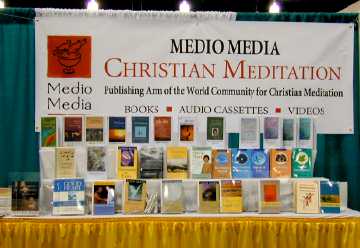 | ||
|
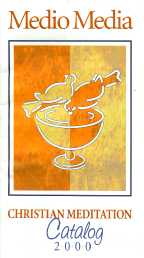 |
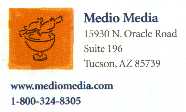 Browse the Medio Media secure Website for books, tapes and videos on the practice of Christian Meditation.
| |
|
Help New Meditators Find You. Enter Your Weekly Meditation Group into the WCCM Online Database. It's easy! | ||
|
| ||
|
| ||
|

|
The International Centre The World Community for Christian Meditation 23 Kensington Square London W8 5HN United Kingdom Tel: 01 71 937 4679 Fax: 01 71 937 6790 General Information The WCCM Symbol WCCM FAQs |
Back to
the Top Back to Last Week Back to 2001 Index Back to Home Page |
| Visit the Weekly Internet
Meditation Group. Visit Medio Media for Christian Meditation Resources. | ||
 Father John's
Anniversary
Father John's
Anniversary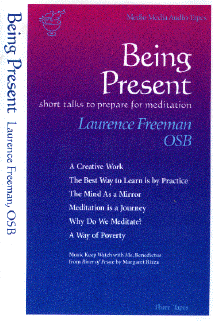
 Information
Information